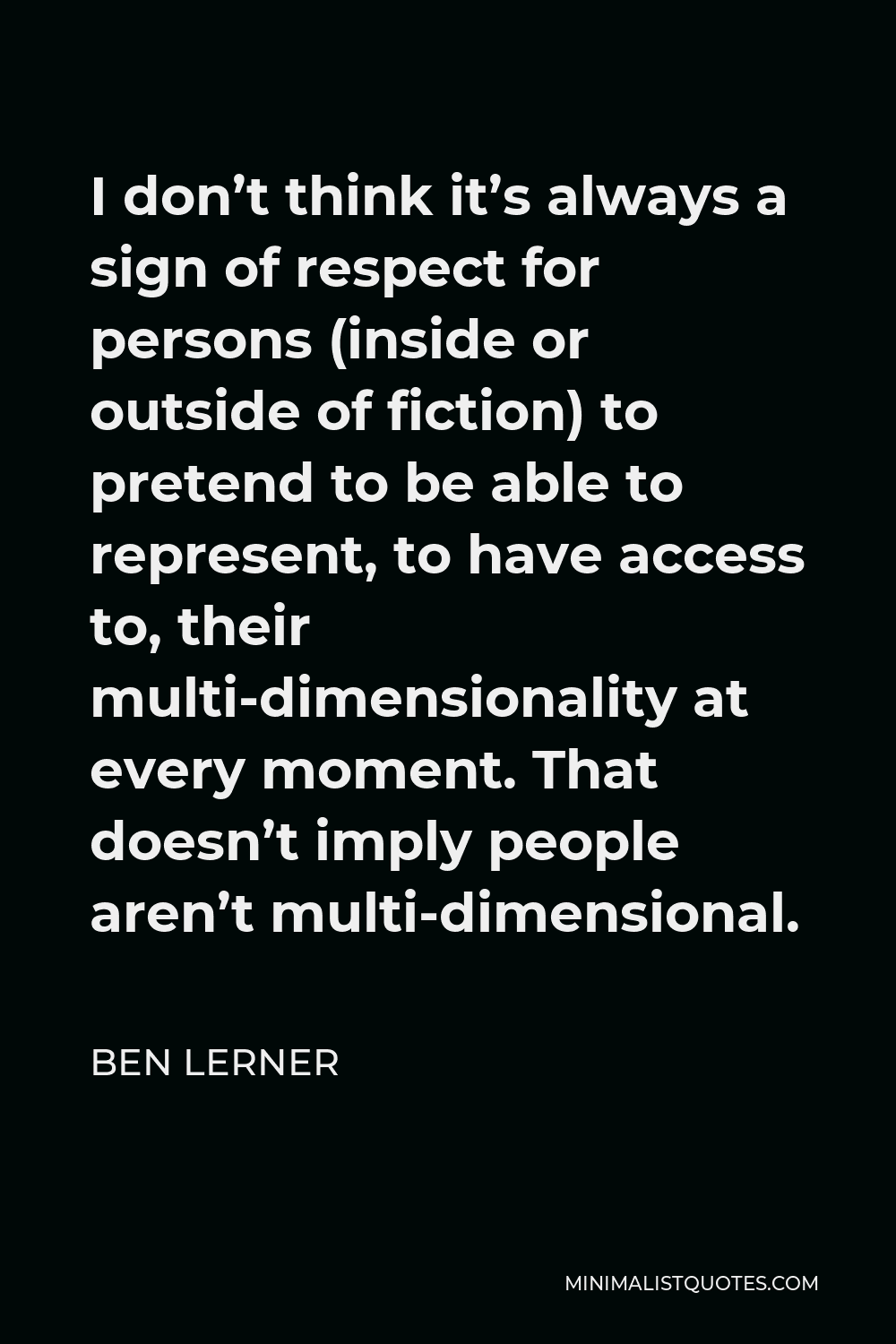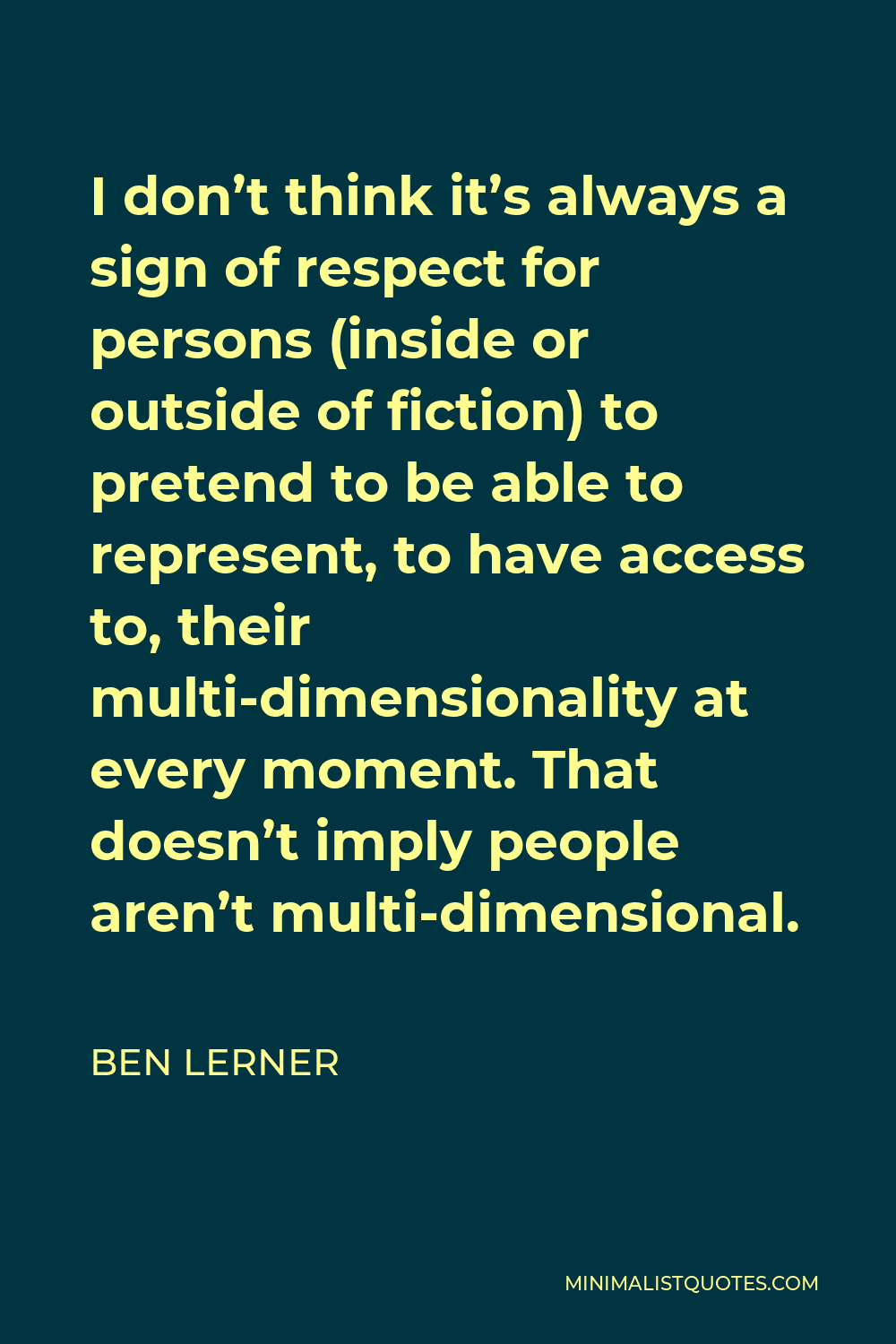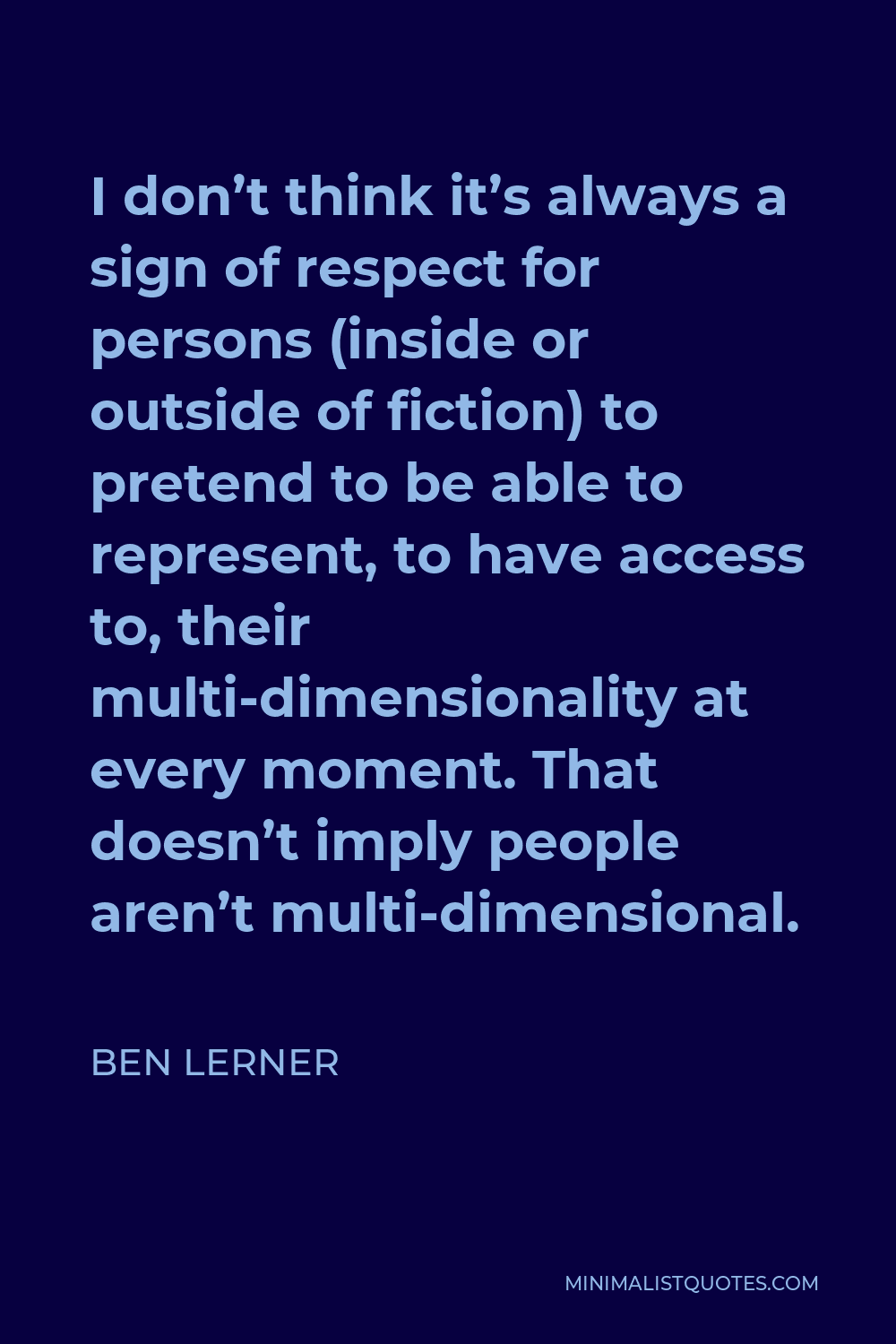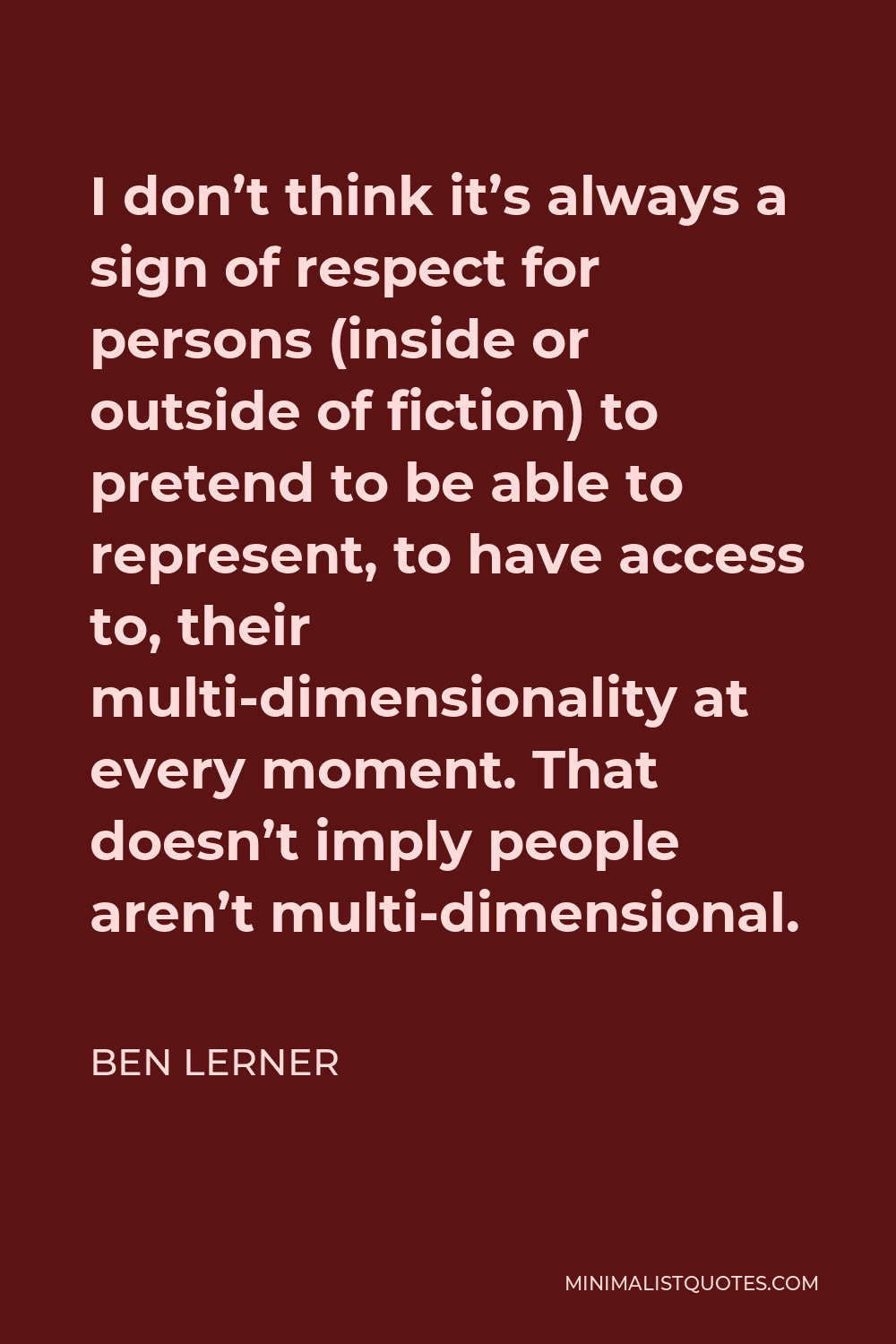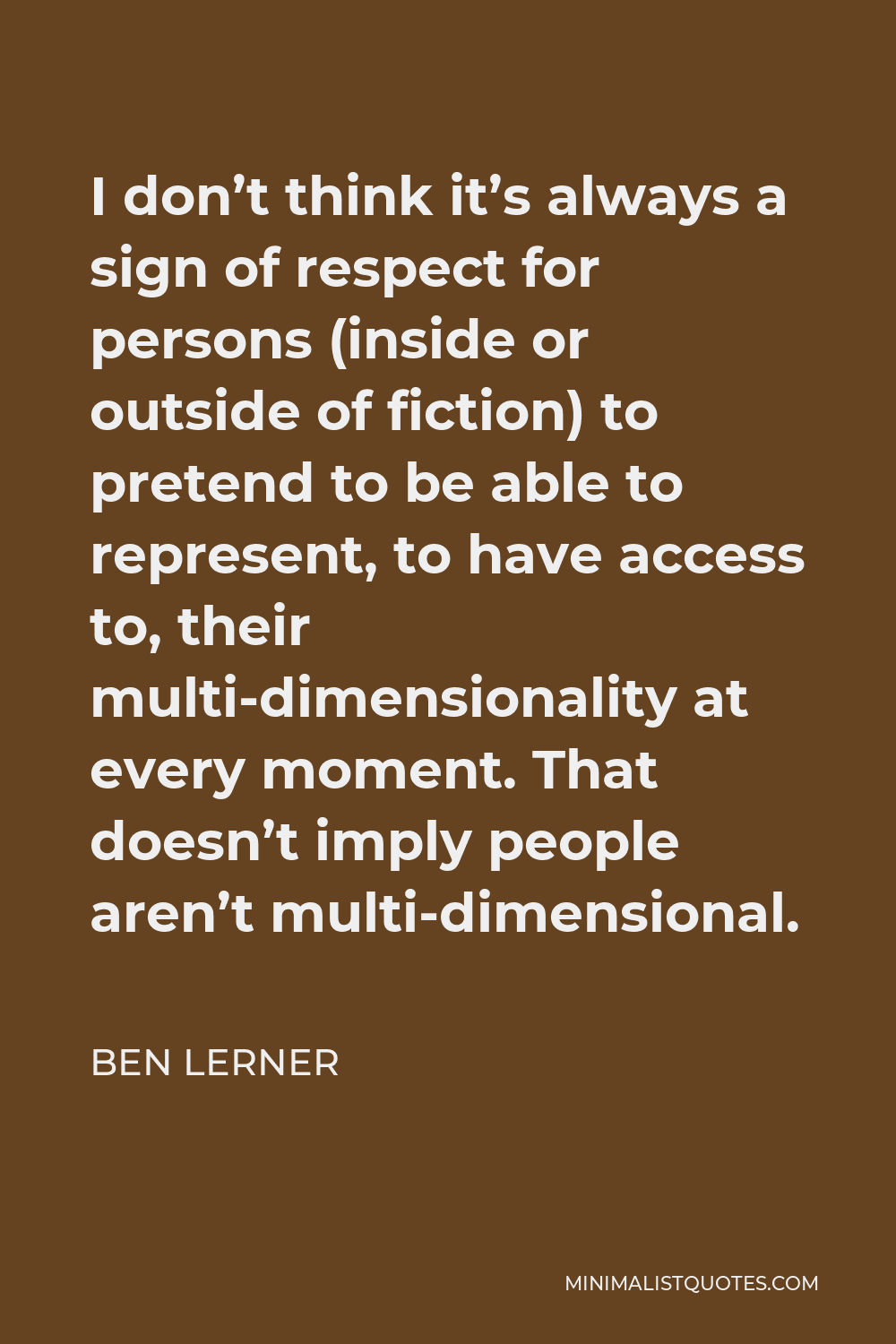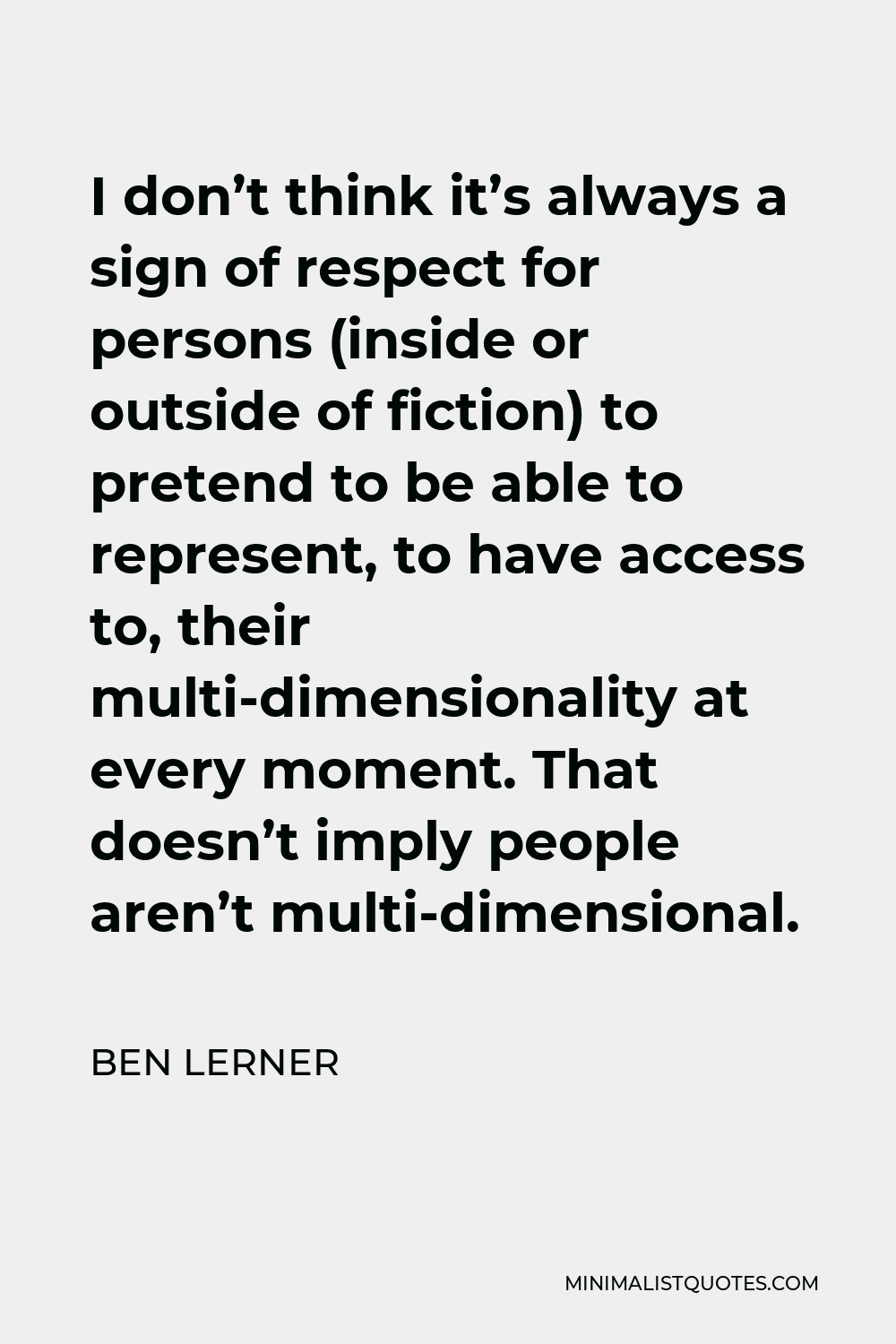Just in case God isn’t dead, our astronauts carry sidearms.
BEN LERNERI don’t think it’s always a sign of respect for persons (inside or outside of fiction) to pretend to be able to represent, to have access to, their multi-dimensionality at every moment. That doesn’t imply people aren’t multi-dimensional.
More Ben Lerner Quotes
-






-







Maggie Nelson cuts through our culture’s prefabricated structures of thought and feeling with an intelligence whose ferocity is ultimately in the service of love. No piety is safe, no orthodoxy, no easy irony. The scare quotes burn off like fog.
BEN LERNER -






Few real people appear in my two novels, actually. “Ari” appears on the edge of this book a couple of times – but on the edge, she’s never in it, even if she’s a determining force from the outside. Everybody in the first book was basically made up, if never from scratch.
BEN LERNER -






Are there are fireflies on the West Coast? I never saw any when I lived in California.
BEN LERNER -





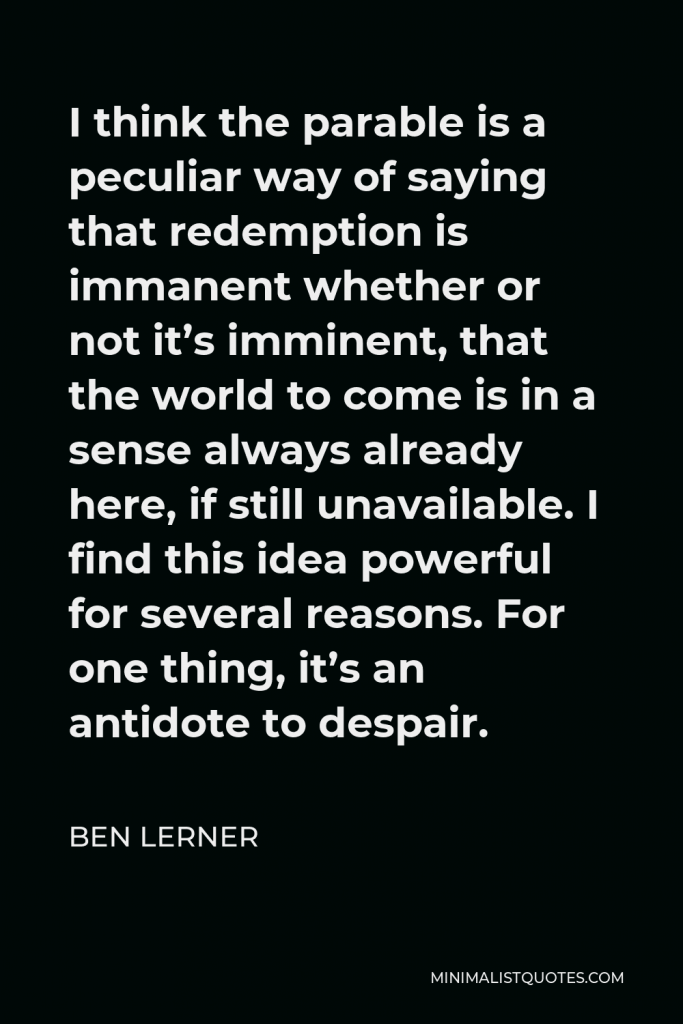

I think the parable is a peculiar way of saying that redemption is immanent whether or not it’s imminent, that the world to come is in a sense always already here, if still unavailable. I find this idea powerful for several reasons. For one thing, it’s an antidote to despair.
BEN LERNER -






Anyway I read more contemporary poetry than contemporary fiction so my mind goes first to a kind of crass “conceptualism” that repeats vanguard gestures of the past minus the politics and historical context.
BEN LERNER -






I came to realize that far more important to me than any plot or conventional sense was the sheer directionality I felt while reading prose, the texture of time as it passed, life’s white machine.
BEN LERNER -







I remember I had this recurring dream that we were playing a night game and instead of eye black we had mashed up the glowing bodies of fireflies and put that under our eyes. So our faces were glowing – a kind of night vision.
BEN LERNER -






The transpersonal is more awe-inspiring, more exciting than the thing we confuse it for.
BEN LERNER -







Henry James claim that if you want to be a novelist you should be somebody on whom nothing is lost.
BEN LERNER -





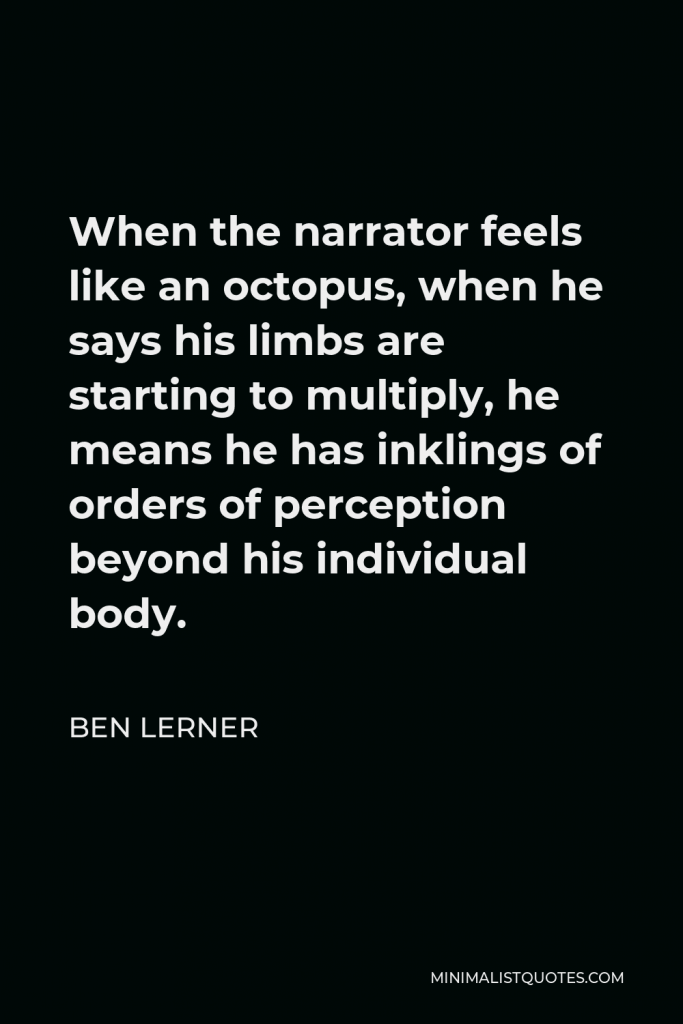

When the narrator feels like an octopus, when he says his limbs are starting to multiply, he means he has inklings of orders of perception beyond his individual body.
BEN LERNER -







Many of the left thinkers that really matter to me – that formed a big part of my thinking about politics and art – emphasize how capitalism is a totality, how there’s no escape from it, no outside.
BEN LERNER -






If I was a poet, I had become one because poetry, more intensely than any other practice, could not evade its anachronism and marginality and so constituted a kind of acknowledgment of my own preposterousness, admitting my bad faith in good faith, so to speak.
BEN LERNER -






I’ve been building a fiction in part around the Marfa poem since my brief residency there, which has kept it from receding into the past.
BEN LERNER -







Experiments with the “as if” of fiction are often more lively in poetry and criticism and other modes of writing than in weak short stories or novels.
BEN LERNER -






I think the anti-intellectualism of a lot of contemporary fiction is a kind of despairing of literature’s ability to be anything more than perfectly bound blog posts or transcribed sitcoms.
BEN LERNER
